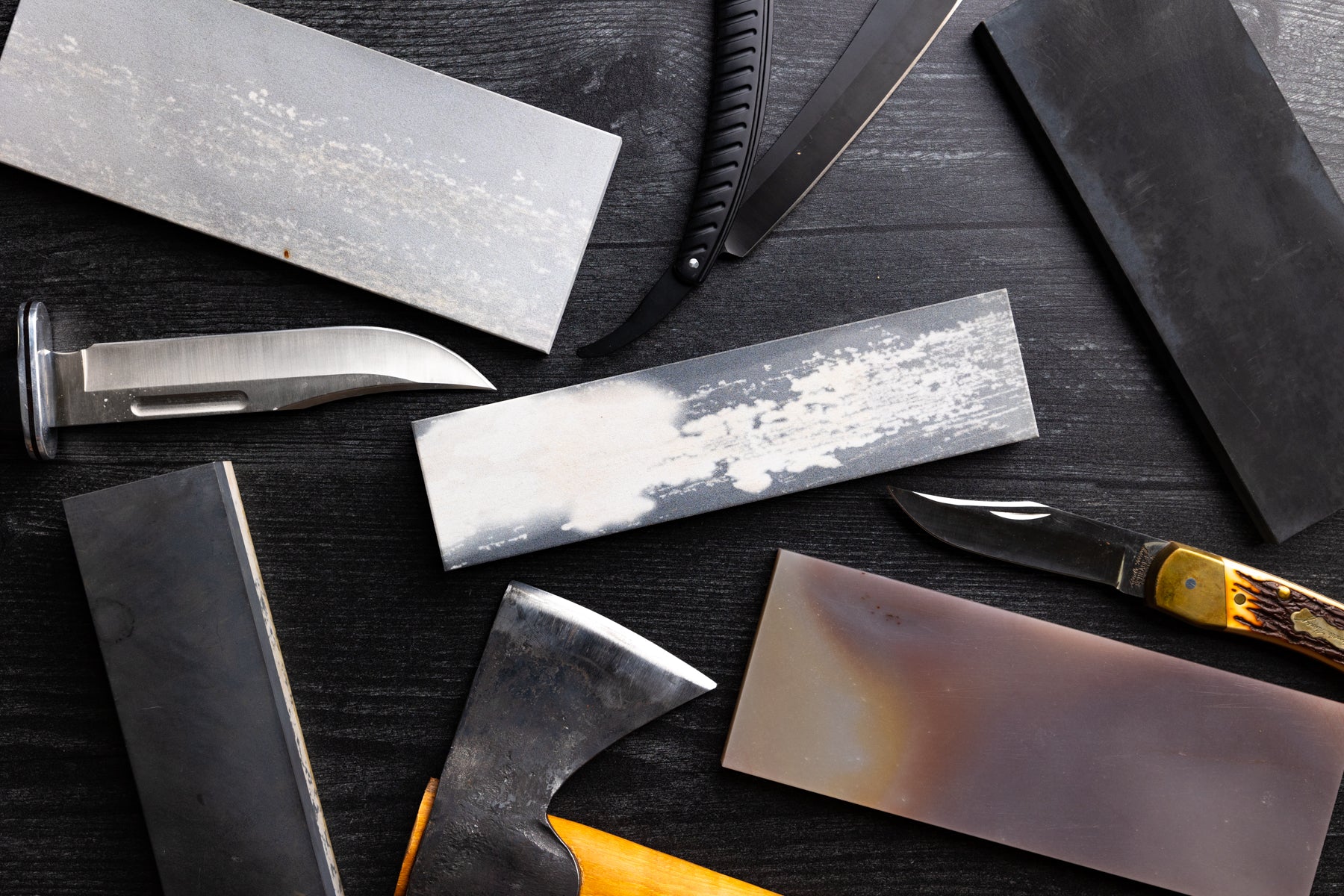Understanding Arkansas Stones

In the world of sharpening, where precision and edge performance are paramount, Arkansas stones stand out as the epitome of America’s natural whetstones. Originating from the Ouachita Mountains, Arkansas stones have captured the interest of many hand-sharpening enthusiasts. As a naturally occurring sharpening stone, there are some key characteristics that need to be understood.
Comparing Arkansas Stones to Synthetic Stones
Synthetic stones are graded by the size of their abrasive particles. Most commonly by grit size, where the larger the grit number, the smaller the abrasives are. The abrasiveness of Arkansas stones comes from the very fine quartz crystals that make up these sharpening stones. Since Arkansas Stones are formed through geological processes, it’s not possible to grade them by the size of the abrasive particles. Instead they’re graded by their density and put into four main categories: Soft, Hard, Black and Translucent.
Sometimes you will see the grit equivalent mentioned alongside the Arkansas Stone grade. This is usually determined by comparing the scratch pattern left by the stone and matching it to a roughly equivalent grit. This is to help you compare Arkansas Stones to other bench stone types. If you want to learn more about the different kinds of sharpening stone materials and how they compare to each other our article Difference in Sharpening Stone Materials will help.
Arkansas Stone Grades
The Soft Arkansas Stone:
The journey begins with the the Soft Arkansas stone. All Arkansas stones are relatively fine, but the soft is the coarsest grade of Arkansas stone. Its unique marbling provides both visual appeal and crucial feedback, enabling precise adjustments during the sharpening process. With the Soft Arkansas stone, achieving a keen edge becomes a seamless experience. The Soft Arkansas can be compared to a 600-800 grit stone.
The Hard Arkansas Stone:
Moving up the density ladder, we encounter the Hard Arkansas stone. As the name suggests, this stone offers increased density, resulting in an even finer surface for sharpening. The hard Arkansas stone performs similarly to an 800-1000 grit stone. Its distinct and immediate feedback offers a tactile experience, connecting the sharpener intimately with the blade. With the hard Arkansas stone, maintaining a consistent cutting profile and attaining exceptional sharpness becomes second nature.
The Black Arkansas Stone:
The Hard Black Arkansas stone stands as an intriguing member of the family. With its sleek and dark appearance, it might be mistaken for a synthetic stone, but it's a natural whetstone with extraordinary qualities. Combining speed and immediate feedback, this stone allows for efficient sharpening while providing full control. It leaves a finish on your edges comparable to a 1200+ grit stone. The Black Arkansas stone is a favorite among sharpening enthusiasts, thanks to how hard and fine the stone is.
The Translucent Arkansas Stone:
Last but certainly not least, we encounter the Translucent Arkansas stone. Sharing similarities with its Black Hard counterpart, equivalent to a 1,200+ grit stone, this stone offers excellent feedback and a remarkable surface. This stone is not just named translucent, light will actually pass through it. The translucent Arkansas stone is a prized sharpener that enhances the cutting performance of your knives, making it a valuable addition to any sharpening toolkit.
How To Use Arkansas Stones
Arkansas stones are primarily used as oil stones. We recommend using a honing oil. Avoid other kinds of oils, such as vegetable oils, as they can harden and create a sticky surface on the stone.
If you have an unused Arkansas stone, you can use it with water. However, we prefer oil for two reasons. First, oil remains within the stone. Using water requires soaking the stone to re-saturate it. Second, oil better prevents the stone's surface from clogging with waste from the sharpening process, exposing more abrasives for faster sharpening.
Arkansas stones are very hard and slow-wearing, so they don’t require the regular flattening that water stones do.
If you’re interested in trying Arkansas sharpening stones for yourself, you can browse our full collection of Arkansas stones here.





